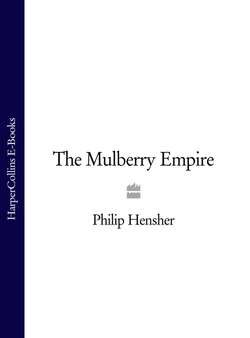Читать книгу The Mulberry Empire - Philip Hensher - Страница 17
10.
ОглавлениеUnder the lighted window, five squatting men sat, their attention focused on the eldest of them, his beard thick and square and white on his brown face, like a silver spade. Sadiq, older than he could tell, was telling them a story. His stories were not princesses in gardens and wizards and magic rings, but stories of this city, stories of the past. He was telling them what their fathers had told them many times, the story of how the brave, the great Futteh Khan, great brother of the Amir Dost Mohammed Khan, met his end at the hands of the stinking enemy. They knew the story, had heard it a hundred times, from their fathers, their mothers, and, dozens of times, many many dozens of times, sitting just here, squatting against the wall, listening to just such a storyteller as the fierce-eyed Sadiq, rousing them to vengeance, muttering into the listening night. ‘And when the Vizier Futteh Khan returned, the treacherous Prince Kamran, chief of the stinking Suddozyes, he fell on him, and seized him, and his eyes were put out. And when he was blind and powerless he was not left to wander the deserts to beg for pity, powerless as he was, but was sliced, and cut, and yet he suffered all in silence. First the treacherous Prince Kamran demanded that he and his brothers surrender to the Persian Emperor, and the Vizier refused. And so Atta Mahmoud Khan, may his torments in hell be unending, sliced off his ear, and another the other ear, and a third his nose. And all the time they lied and said the Vizier had done them wrong. May we rise up and avenge the Vizier and all his enemies! And then his right hand and then his left, and all these torments and lies the Vizier Futteh Khan bore silently and without a sound, as the blood gushed from his face and the stumps of his arms like the fount of a river in spring, so brave was he; but when his enemies took his beard, and with their knives cut it from his face, he wept from his bleeding eyes and cried out from his tongueless mouth, to think how his pride was treated. Vengeance fall on his enemies! Vengeance in the hearts of the subjects of the Amir!’
Above, by the light of a candle which stank of tallow, and burned the walls black and smoked out the room, Burnes, oblivious, wrote on, setting down the Afghans, making sure of what they were and what he knew. For now, this would do. In the end, however, he came to examine his feelings, his sensations; and came to contemplate the particular hollow beating, between dread and excitement, which settled in the stomach at especial moments. Especial moments; standing there, in the hall of the Bala Hissar, waiting to be shown into the presence of the Amir. It was a feeling like that of standing there before a woman who waited only for him to seize her. A feeling like sitting, even, at his desk, taking up a sheaf of paper and beginning to write, to set down what he had seen. Each time the same feeling, each time, a feeling not to be argued with, or explained away. So strong it was, and it remained, that he concluded, in the end, when his life had become what it would become, that it was not, after all, what it so resembled, the awareness of the physical manifestation of sex, nor of the possibility of sex, but merely that of possibility. For him, the excitement which hollowed out his stomach and made his heart beat would always be produced not by what might happen, but what would not, despite all appearances, occur, and it was for the empty promises of chance that his heart beat, and his eyes grew big, and his stomach hollowed, and he stood, and stared at what was there to be stared at. Just that. And, each day, before he began to write, the proverb of the poet came to mind, the proverb carved deep on the tomb of the Emperor Babur, and he spoke it to himself, in his sincere deep rumbling Persian. Drink wine in the city of Kabul, and send round the cup without stopping; for Kabul is a mountain, a sea, a town, a desert.
